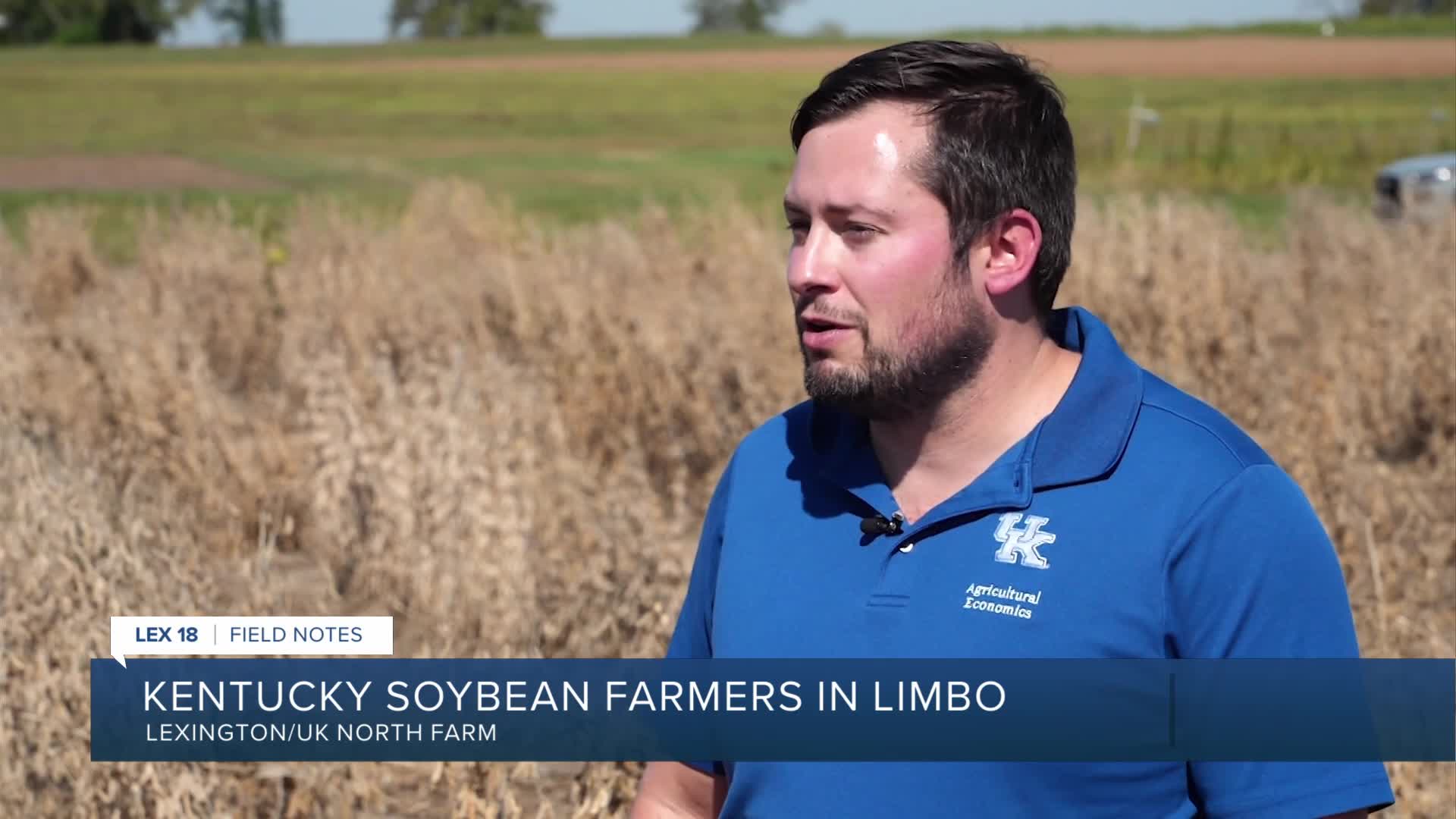LEXINGTON, Ky. (LEX 18) — Kentucky's top crop is nearing a crisis as the state's nearly 2 million acres of soybeans prepare for harvest amid a trade dispute.
China, the biggest buyer of U.S. soybeans, has stopped purchasing American crops in retaliation for tariffs imposed by the Trump administration. The timing couldn't be worse for Kentucky farmers already struggling with high input costs and weather challenges.
Grant Gardner, a University of Kentucky assistant extension professor, said central Kentucky farmers were already facing a "double whammy" of poor yields and low prices before trade fallout entered the picture.
The soybeans, which will be harvested from early September through November depending on planting dates, are grown on about 1.9 million acres across Kentucky. The crop is primarily used to produce livestock feed, cooking oils and biodiesel.
Input costs like fertilizer remain high while grain prices have dropped. Heavy spring rains followed by drought conditions have further threatened soybean yields across the state.
The trade war has made an already difficult situation worse for farmers.
"Since that has happened, China has pushed back and basically said, 'Well, we can source soybeans from elsewhere.' So this year, they have not bought a single soybean from the United States," Gardner said.
The impact is significant. Last year, the U.S. exported nearly $24.5 billion worth of soybeans, with China accounting for more than $12.5 billion of those purchases, according to USDA data.
"When we see anyone try to negotiate trade like we've seen in this administration, agriculture is the one that takes the brunt of it because we are a net exporter of ag products," Gardner said.
If the standoff continues, Gardner explained that soybean products would back up in the United States while China turns to Argentina and Brazil for its soybean imports.
For farmers caught in the middle, Gardner hopes they have diversified operations with other commodities to rely on this year.
"I think best case scenario is to break even, then from there it's all downhill, and I think we're gonna see a lot of negative returns for the soybean crop in general within the state of Kentucky," Gardner said.





